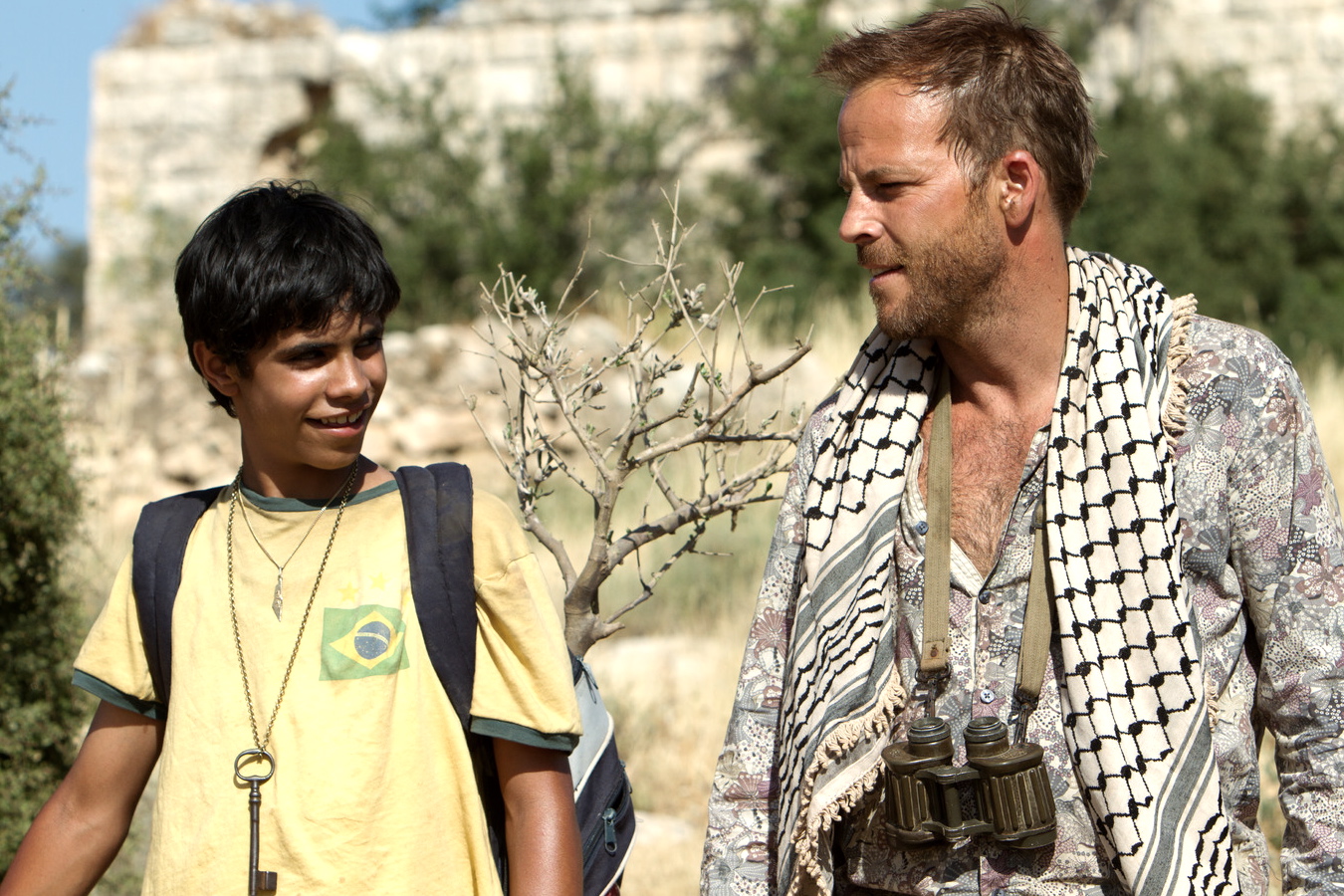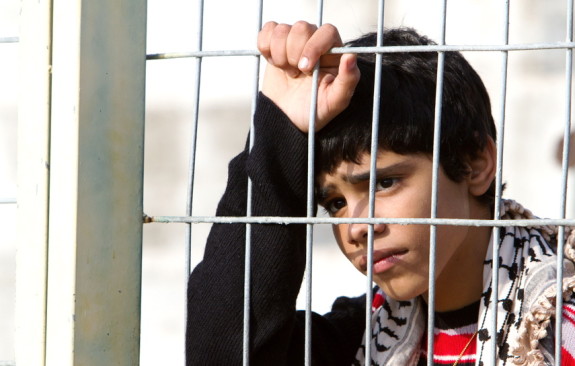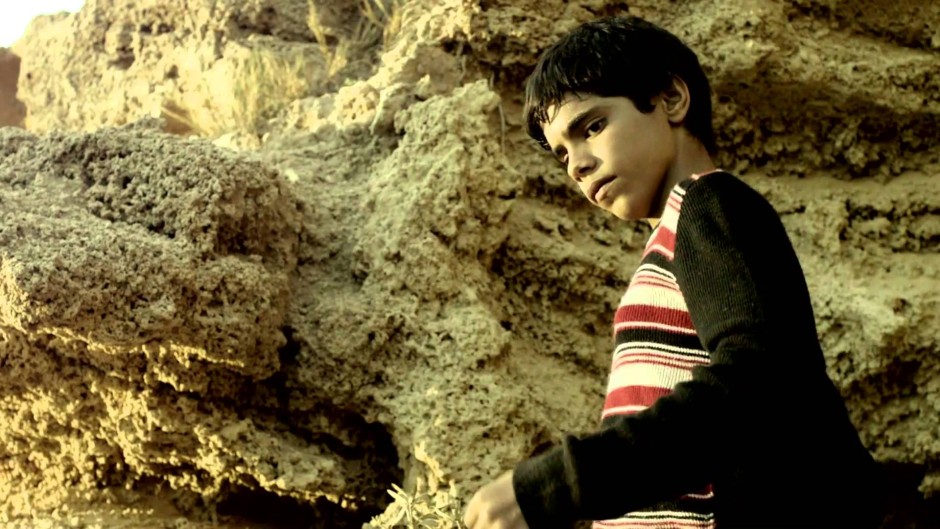Boiled down to its essentials, the subliminal message of Eran Riklis’ Zaytoun is: Why can’t we just get along? This simple yet trenchant phrase informs his touching film.
A runner-up for the People’s Choice Award at the 2012 Toronto International Film Festival, Zeytoun is set in Lebanon and Israel on the eve of the 1982 war and unfolds in Arabic, Hebrew and English.
The Toronto Jewish Film Festival’s Chai Tea & A Movie series will present it at the City Playhouse Theater (1000 New Westminster Drive, in Vaughan) on Sunday, Jan. 19 at 5 p.m. Tea will be served at 4 p.m.
An Israeli, British and French production, it opens in the skies over Lebanon as an Israeli fighter jet streaks toward a target. The film then cuts to a Palestinian refugee camp in Beirut, where a group of boisterous boys kick around a soccer ball and trade insults with their Lebanese neighbors.

“Go home, you rotten Palestinians,” a man shouts. “Lebanese whores,” the boys reply in a pungent riposte. There is a glaring absence of brotherly love in this barbed exchange. The Lebanese may sympathize with the Palestinian cause, but they are clearly weary, if not wary, of the Palestinians, who’ve worn out their welcome.
As Zaytoun suggests, the Palestinian boys from the refugee camp do more than play and swear. They submit to military training, singing nationalist songs about their lost homeland, shouting out popular slogans (“We want to return to Palestine”) and learning how to handle a sub-machine gun and crawl under barbed wire. These martial skills will come in handy should they ever be called upon to become guerrillas in the armed struggle against Israel.
The yearning for Palestine also manifests itself in a scene in which a 10-year-old Palestinian lad, Fahed (Abdallah El Akal), watches his father plant an olive sapling in a pot. Fahed, brought up on romantic stories of Palestine, wants to plant the tree in their ancestral village in Israel, but his wizened grandfather doubts whether that will ever be possible.
The film takes a sharp turn when an Israeli F-16 jet suddenly appears overhead. Fahed takes a wild shot at it with his revolver, and lo and behold, the plane spirals downward, trailing black smoke. The pilot, a major, is captured and thrown into a dank cell.
“Mayim, mayim,” the pilot groans in Hebrew, begging for water. Fahed treats him callously. Yoni (Stephen Dorff), the Israeli, responds in kind. “They’ll find me and then they’ll destroy this place,” he says in a threatening tone. After Fahed hangs a map of Palestine on the wall, Yoni belittles it. “There is no Falastin,” he says. Following another verbal altercation, Fahed shoots Yoni, who spends the next few days in a clinic.
In a startling turn, Fahed offers Yoni his freedom if he guides him to the southern border and into Israel. Fahed is determined to plant the olive tree in the village from which his family fled in the 1948 war.

In the next few scenes, Yoni and Fahed head southward in what turns into an old-fashioned road movie. Yoni, clad in an Arab scarf to ward off suspicion, hires a taxi for an exhorbitant fee. When they reach a military checkpoint, they run for their lives, darting along the rocky coast. They hijack a Lebanese army jeep, only to ditch it after an accident.
Their adventure brings them closer together. Fahed, concerned about Yoni’s wound, whips up a home remedy made of local herbs and alcohol. Yoni saves Fahed’s life in a minefield.
Having reached Israel, Yoni flouts regulations and drives Fahed to the abandoned ancestral village, where Fahed can finally carry out his mission. Standing amid its ruins, Yoni silently reflects on the tragedy of the Palestinian dispersal. Fahed is grateful for having been given the opportunity to plant his tree.
During these quiet moments, they discover each other’s humanity, but real reconciliation is still far off in the distance, subject to the vagaries of war and politics.
Dorff and El Akal work very well together, their personal chemistry precipitating a wide array of emotions ranging from anger to tenderness. Dorff delivers a polished performance, his Hebrew-inflected English accent always faultless. El Akal, remarkably mature, is never less than poised.
Zaytoun portrays Israel’s struggle with the Palestinians through sober eyes, but holds out the hope, however faint, that the force of humanity can transcend the accumulated hatred of the Arab-Israeli conflict.
